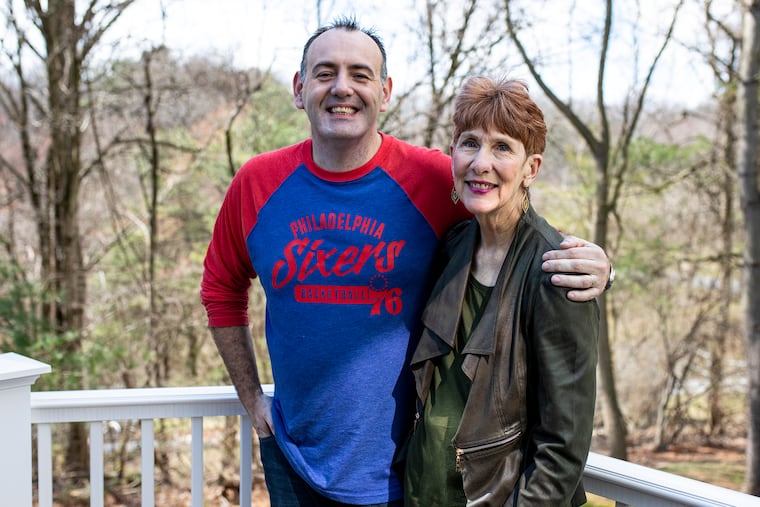In times of tragedy and disaster, we need comfort. Welcome, coronavirus acts of kindness. | Helen Ubiñas
Often the smallest act of kindness give us the most hope.

In Philadelphia, at the Roxborough Acme, lines wrapped around the aisles as anxious customers waited to check out carts full of groceries. And then they agreed that an elderly shopper should go ahead of them.
In Wayne, a fellow mom insisted that Ann St. Leger take one of two bottles of sanitizer she had for her family of seven. St. Leger’s daughter had been scheduled for surgery and she wanted to replenish her bottles at home to keep her healthy, but every store she checked was out.
“I tried to decline because she has a large family to keep healthy," St. Leger said, "but she wouldn’t take no for an answer.”
And in Chadds Ford, 73-year-old Betsy Del Vecchio opened her door to see her next-door neighbor Leigh Cullen grinning outside.
“Hello, vulnerable person!” Cullen said, referring to the increased threat of coronavirus for older adults.
Del Vecchio smiled, delighted by the Irish brogue that made Cullen’s greeting more charming than alarming.
“Look, this is getting really, really, really scary,” Cullen, a father of two, told her. “If you need any groceries or anything at all, you tell us. Stay home and stay safe.”
The neighbors in Del Vecchio’s cul-de-sac, most of whom are from countries like Ecuador, Brazil, Bulgaria, and Ireland, are already pretty tight-knit, but this added check-in touched the recent widow.
“How wonderful,” Del Vecchio thought.
When I caught up to Cullen, a tax adviser who was home with his family, he said his mother, who passed away from a respiratory illness right before they moved to the States from Ireland about a year ago, always told him:
“You can just be kind for the sake of being kind.”
That’s certainly true. But in times of crisis, acts of kindness weigh that much more. In the midst of a disaster or tragedy or now, the coronavirus pandemic, it’s often the smallest act of kindness that gives us the most hope.
These stories are a glimmer of hope. We, the people, acting out of our better natures.
On Twitter, Rebecca Mehra from Oregon shared her story in a viral thread.
Mehra was walking into a grocery store when an elderly woman called to her from a car. From a window opened just enough for her to hear, the woman explained that she and her husband, in their 80s, were afraid to go in. Would Mehra shop for them? she asked, slipping money through the crack in the window. She did.
“I know it’s a time of hysteria and nerves,” Mehra wrote, “but offer to help anyone you can.”
On Facebook, Pem McNerney — full disclosure, she’s a former editor of mine from Connecticut — shared that a woman in her row on a plane was sharing her Clorox wipes.
“We’re all in this together,” McNerney reported the woman as saying.
In posts all over social media, people are encouraging one another to be kind and generous to those on the front lines — doctors and nurses, bus drivers and wait staff who don’t have the luxury of staying home. Richard Ross, formerly of Cherry Hill but now living in Florida, told me that he’s trying to do his part by going to his local Chinese restaurant more, “and leaving a big tip.”
A lot of businesses and organizations — large and small — are trying to do their part, too. The Jewish Family and Children’s Services of Greater Philadelphia is providing emergency supplies to its most vulnerable clients. A market in Connecticut is closed, but its self-serve egg cooler is stocked with cartons and a sign for folks to “Pay what you wish – stay healthy.” La Colombe has offered to send coffee to both the elderly and sick who are struggling with self-quarantine or health-care professionals working around the clock.
At a time of so much fear and uncertainty, these acts of kindness — for those committing and receiving them — are a desperately needed balm. A unifying act of humanity that reminds us that we are all in this together, and together is the only way we’ll get through it.